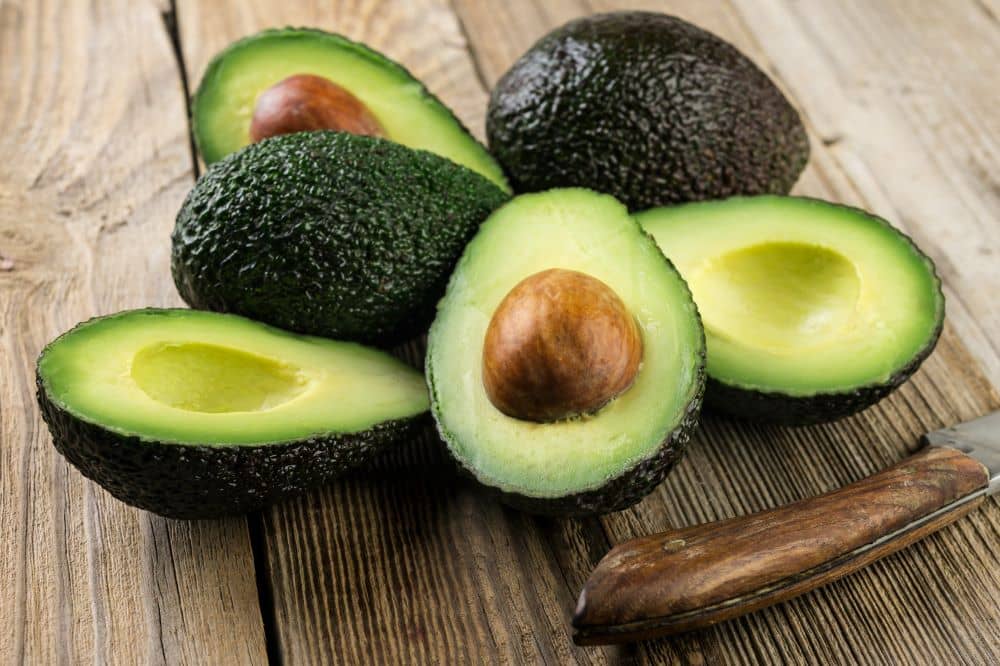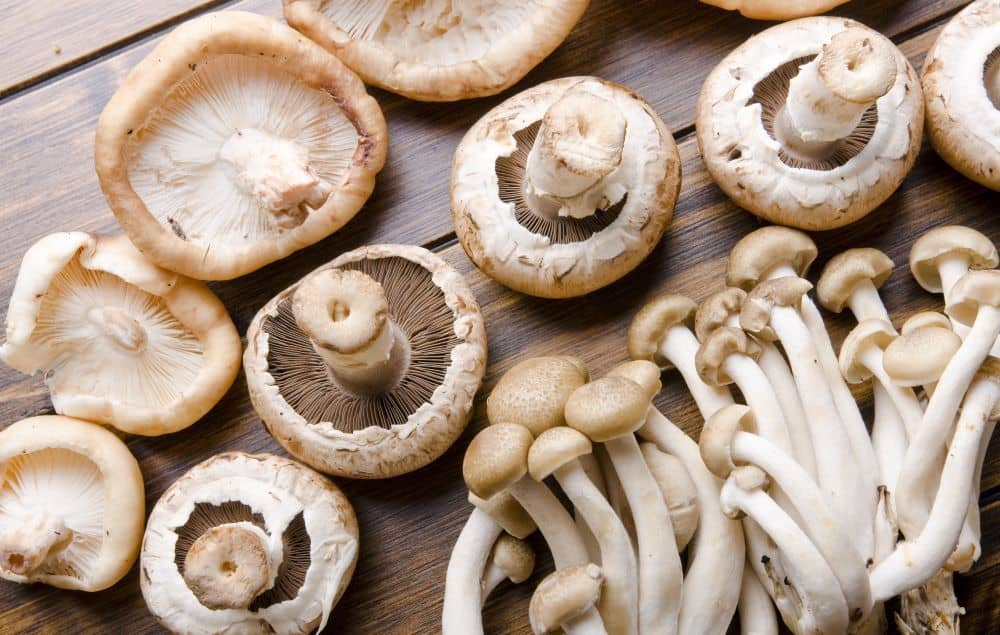The Best (And Worst) Foods for Inflammation
Did you know inflammation can be both bad and good?
Inflammation is beneficial when your body needs to defend itself against injury or infection. However, chronic inflammation resulting from stress, disease, and inflammatory foods can lead to negative health effects.
Here, we’ll list some of the top foods for fighting inflammation as well as inflammatory foods to avoid.
Top Anti-Inflammatory Foods
1. Broccoli
Broccoli, an extremely nutritious vegetable, is packed with fiber, vitamins, minerals, and nutrients. It is a member of the cruciferous family of vegetables that also includes kale, Brussel sprouts, and cauliflower.
Its anti-inflammatory power comes from its high levels of antioxidants, including sulforaphane.
2. Berries
Berries contain vitamins, fiber, minerals, and antioxidants such as anthocyanins that have anti-inflammatory effects.
Some of the most common types of berries include:
- Blueberries
- Strawberries
- Blackberries
- Raspberries
3. Fatty Fish
Fatty fish provide an excellent source of high-quality protein, along with long-chain fatty acids DHA and EPA.
Although all fish contain some omega-3 fatty acids, fatty fish provide the most potent source. Some fatty fish to consider including in your diet are:
- Sardines
- Wild-caught salmon
- Herring
- Anchovies
- Mackerel
The body metabolizes the fatty acids in fish and turns them into protectins and resolvins, compounds that have anti-inflammatory effects.
4. Avocados
With magnesium, fiber, potassium, and monounsaturated fats, avocados are well-deserving of their status as a superfood.
Avocados also contain tocopherols, carotenoids, and other anti-inflammatory compounds.
Avocados make a delicious, convenient addition to meals and snacks.
Here are some of our favorite ways to use them:
- Added to smoothies
- Spread on toast
- With a rice bowl
- As guacamole
- Eaten plain!
5. Grapes
Grapes contain potent compounds such as resveratrol and anthocyanins known for their anti-inflammatory effects and health benefits.
In one study, grape consumption was found to increase anti-inflammatory markers in participants.
6. Green Tea
Green tea is well-known as one of the healthiest drinks on the planet. Along with its high levels of antioxidants and many proven health benefits, green tea also boasts anti-inflammatory properties.
Many of its benefits can be attributed to a potent substance called epigallocatechin-3-gallate (EGCG). EGCG fights inflammation by reducing pro-inflammatory cytokine production.
7. Peppers
Bell peppers and chili peppers are brimming with antioxidants, vitamin C, and a variety of compounds that have anti-inflammatory effects:
- Sinapic acid
- Ferulic acid
- Quercetin
- Additional antioxidants
8. Turmeric
Turmeric is a strong spice, often used in Indian dishes such as curry. It is notorious for its high content of curcumin, a powerful anti-inflammatory compound.
Consuming 1 gram of curcumin daily, along with black pepper to enhance its absorption, resulted in decreased inflammatory markers in individuals with metabolic syndrome.
Turmeric can be found in supplements or easily added to a variety of meals.
9. Cherries
Cherries, both sweet and tart varieties, are rich in antioxidants such as catechins and anthocyanins that fight inflammation. Cherries are also full of vitamins, minerals, fiber, and a host of other beneficial nutrients.
10. Extra Virgin Olive Oil
Extra virgin olive oil, a staple in the Mediterranean diet, is rich in monounsaturated fats. These healthy fats are well-known for their health benefits, including anti-inflammatory properties.
Extra virgin olive oil is so powerful that oleocanthal, one of its primary antioxidants, may boast comparable anti-inflammatory effects to ibuprofen.
11. Dark Chocolate and Cocoa
We all know that dark chocolate is indulgent and delicious. But did you know dark chocolate is full of health benefits?
Dark chocolate and cocoa are packed with antioxidants and flavonols that can help fight inflammation. Just be sure to choose dark chocolate consisting of a minimum of 70% cocoa. The higher the percentage of cocoa, the higher the antioxidants (and the lower the sugar content).
12. Mushrooms
Thousands of varieties of mushrooms exist, some of which are edible. Edible mushrooms contain antioxidants, copper, selenium, B vitamins, and phenols that offer anti-inflammatory effects. To ensure the highest antioxidant content, consider eating them raw or lightly cooked.
Some delicious edible mushrooms include:
- Portobellos
- Shiitake
- Truffles
- Lion’s mane
13. Tomatoes
With vitamin C, potassium, and lycopene — an antioxidant with powerful anti-inflammatory properties — tomatoes are true nutritional powerhouses.
Since lycopene is a carotenoid and better absorbed with a source of fat, cooking tomatoes in olive oil may help you maximize the amount of lycopene your body can use.
Inflammatory Foods to Limit or Avoid
In addition to including nutritious, anti-inflammatory foods in your diet, it is also important to be aware of which foods may promote inflammation.
Here are some examples of foods that have been linked to increased levels of inflammation.
Foods That Promote Inflammation
1. Vegetable and Seed Oils
Vegetable oil consumption in the United States has skyrocketed over the last century. Vegetable oils are high in omega 6 fatty acids, compounds that may increase inflammation. Although some omega 6 fats are necessary for overall health, the Western diet often includes too many omega 6 fats and too few omega 3 fatty acids.
Although further research is needed to confirm the link between omega 6 fatty acids and inflammation, consider choosing alternative oils such as extra virgin olive oil or coconut oil.
2. Sugar and High-Fructose Corn Syrup
Table sugar (sucrose) and high fructose corn syrup (HFCS) are commonly found in excess in Western diets.
Sugar is comprised of 50% glucose and 50% fructose, while high fructose corn syrup is roughly 55% fructose and 45%.
Added sugars may increase inflammation, making it important to limit excess sugar in your diet. Soda may be especially bad, as evidenced by studies showing heightened levels of uric acid in soda drinkers, resulting in increased inflammation.
While the small amounts of fructose found naturally in fruits and vegetables are generally considered fine, large amounts of added sugars can have detrimental health effects.
Common foods high in excess sugar include:
- Soft drinks
- Cakes
- Pastries
- Sweetened cereals
- Ice cream
- Cookies
- Candy
3. Artificial Trans Fats
While some fats can be healthy, trans fats — also known as partially hydrogenated oils — should be avoided. These artificial fats are created by adding hydrogen to unsaturated fats. This process increases the stability of unsaturated fats and is used to increase the shelf life of certain foods.
Artificial trans fats have been linked to inflammation in various studies.
Foods high in trans fats include:
- Fried foods
- Certain varieties of microwave popcorn
- Some varieties of vegetable shortening and margarine
- Packaged cookies
- Packaged cake mixes
- Some cereals
When checking to see if a food contains trans fats, scan the label for “hydrogenated vegetable oil” or “partially hydrogenated vegetable oil” on the label.
4. Refined Carbohydrates
While not all carbohydrates are unhealthy, refined carbs are stripped of their fiber. Without fiber to promote feelings of fullness, support healthy blood sugar levels, and feed the good bacteria in your gut, refined carbs are fairly void of nutrition and may lead to unwanted health effects.
Whereas ancient hunters and gatherers ate unprocessed carbs such as fruit, grasses, and roots, modern-day refined carbohydrates may encourage the growth of inflammatory gut bacteria. Refined carbs also rank higher on the glycemic index than unprocessed carbs.
Refined carbohydrates are commonly found in foods and drinks such as:
- Bread
- Pasta
- Candy
- Cookies
- Cakes
- Certain cereals
- Soft drinks
- Processed foods made with flour or sugar
5. Processed Meats and Meats Cooked at High Temperatures
Processed meats and meats cooked at high temperatures often contain more advanced glycation end products (AGEs) than other types of meat. Advanced glycation end products, known as a culprit for causing inflammation, are formed during high-temperature cooking.
Common types of processed meat include:
- Smoked meat
- Bacon
- Ham
- Sausage
- Beef jerky
6. Excessive Alcohol
Excessive alcohol consumption can lead to a variety of health problems, including a rise in the levels of the inflammatory marker CRP.
Heavy drinking may also cause toxins to move out of the colon and into the body, a condition known as “leaky gut syndrome“. This condition can lead to widespread inflammation and overall health problems.
To avoid health problems induced by alcohol consumption, it is generally recommended to limit drink intake to one drink per day for women and two for men.
Final Thoughts
Inflammation can result from a variety of triggers such as sickness, pollution, disease, or injury. While it is impossible to prevent all inflammation, choosing the right foods can help your body keep inflammation down.
What are your favorite foods from the anti-inflammatory list? We’d love to hear from you in the comments.
















